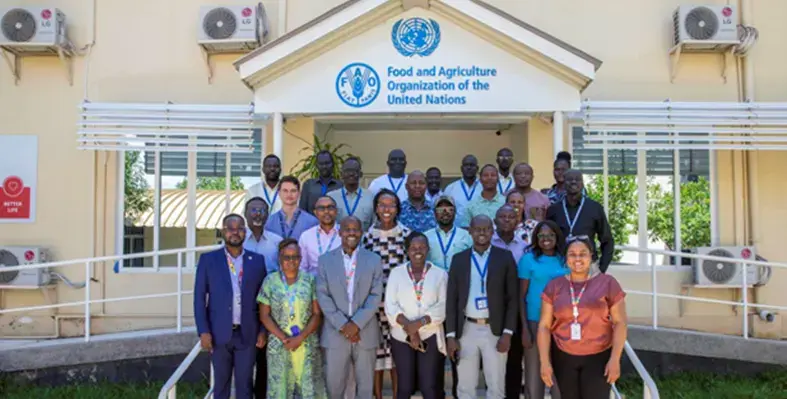FAO South Sudan recently convened a peer review meeting to validate findings on the effectiveness of its seed system investments across five states in the country
The event was geared to assess and strengthen the draft report “Assessing the Effectiveness of Resilience Interventions Through Investments in Seed Systems.”
The event saw representatives from FAO, relevant partners, and technical experts from the United Nations, non-governmental organisations, research institutions, and civil society organisations. Participants provided feedback on a report assessing FAO’s investments in community-based seed production, seed fairs, and direct seed distribution. The evaluation used the Resilience Index Measurement and Analysis II (RIMA-II) methodology to address the 'what' of the outcomes and was complemented by a qualitative tool to explore the 'why' behind the observed results.
“Strengthening local seed systems – including traditional varieties – alongside promoting commercial seed production is essential to support agriculture in South Sudan,” said Felix Dzvurumi, Head of Programme, FAO South Sudan.
“I found this peer review to be both informative and engaging, exceeding my expectations. I appreciate the opportunity to participate in this meeting and learn from FAO's resilience interventions in seed systems,” said Isaac Jebaseelan, Roving Coordinator, South Sudan FSLC.
“The peer review on how seed systems contribute to resilience aligns with the Food Security and Livelihoods Cluster's efforts to promote the sustainability of local seed production and ensure its timely availability to local farmers, thereby supporting collective initiatives aimed at enhancing food security in South Sudan,” said Mat Gai, Cluster Coordinator, South Sudan FSLC.





